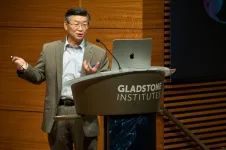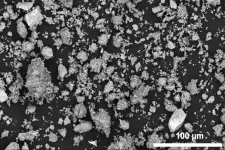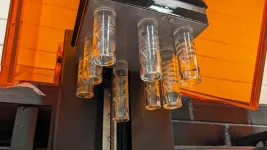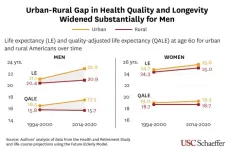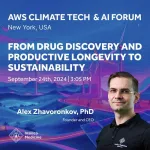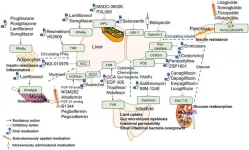(Press-News.org) With the climate pattern known as El Niño in full force from mid-2023 to mid-2024, global temperatures broke records for 12 months in a row. As one of the strongest El Niño events on record, it was likely the main culprit of unprecedented heat, floods and droughts worldwide.
In a new study published Sep. 25 in the journal Nature, a University of Colorado Boulder climate scientist and collaborators reveal that the planet could see more frequent extreme El Niño events by 2050 if greenhouse gas emissions continue to increase.
“It’s pretty scary that 2050 is not very far away,” said Pedro DiNezio, the paper’s co-lead author and associate professor in the Department of Atmospheric and Oceanic Sciences. “If these extreme events become more frequent, society may not have enough time to recover, rebuild and adapt before the next El Niño strikes. The consequences would be devastating.”
Shifting wind and soaring temperatures
El Niño occurs when water temperatures along the equator in the Pacific Ocean rise by at least 0.9 °F above average for an extended period.
The seemingly marginal temperature change can shift wind patterns and ocean currents, triggering unusual weather worldwide, including heat waves, floods and droughts.
When the area warms by 3.6°F above average, scientists classify the El Niño event as extreme. Since the U.S. National Oceanic and Atmospheric Administration began collecting data in the 1950s, the agency has recorded up to four extreme El Niño events.
During an extreme El Niño, the impacts on global weather tend to be more severe. For example, during the winter of 1997-98, El Niño brought record rainfall to California, causing devastating landslides that killed more than a dozen people. Over the same period, the planet lost about 15% of its coral reefs due to prolonged warming.
Last winter El Niño almost reached extreme magnitude, DiNezio said.
“El Niño events are difficult to simulate and predict because there are many mechanisms driving them. This has hindered our ability to produce accurate predictions and help society prepare and reduce the potential damage,” they said.
Prior research suggests that climate change is intensifying and increasing the frequency of extreme weather events, possibly linked to changes in El Niño patterns. However, due to limited data, scientists have yet to confirm whether El Niño will strengthen with warming.
DiNezio and their team set out to simulate El Niño events in the past 21,000 years—since the peak of Earth’s last Ice Age—using a computer model.
The model shows that during the Ice Age, when Earth’s climate was colder, extreme El Niño events were very rare. As the planet warmed since the end of the Ice Age, the frequency and intensity of El Niño have been increasing.
The team validated the model by comparing the simulated data with past ocean temperature data retrieved from fossilized shells of foraminifera, a group of single-celled organisms ubiquitous in the oceans long before human existence. By analyzing the type of oxygen compounds preserved in these fossilized shells, the team reconstructed how El Niño drove ocean temperature fluctuations across the Pacific Ocean for the past 21,000 years. The ancient record aligned with the model’s simulations.
“We are the first to show a model that can realistically simulate past El Niño events, enhancing our confidence in its future predictions. We are also proud of the robust technique we developed to evaluate our model, but unfortunately, it brought us no good news,” DiNezio added.
The model predicts that if society continues to pump greenhouse gases into the atmosphere at the current rate, one in two El Niño events could be extreme by 2050.
The control knob
Despite El Niño’s complexity, the model reveals that a single mechanism has controlled the frequency and intensity of all El Niño events as the planet has warmed since the last Ice Age.
When the eastern Pacific Ocean water warms from natural fluctuation, the winds that always blow east to west over the equatorial Pacific weaken due to changes in air pressure above the ocean. But during an El Niño, weakened winds allow warm water to flow east, and the warmer water weakens the winds even more, creating a feedback loop known as the Bjerknes feedback.
DiNezio’s research suggests that as the atmosphere warms rapidly from greenhouse gas emissions, the planet experiences a stronger Bjerknes feedback, leading to more frequent extreme El Niño events.
With the most recent El Niño now in the past, DiNezio emphasized that society needs to focus on taking measures to reduce the impact from future extreme El Niño events, including cutting emissions and helping communities, particularly those in the developing countries, become resilient to extreme weather.
“We now understand how these extreme events happen, and we just need the will to reduce our reliance on fossil fuels,” they said. “Our findings emphasize the urgent need to limit warming to 1.5 °C to avoid catastrophic climate impacts.”
END
One in two El Niño events could be extreme by mid-century
2024-09-25
ELSE PRESS RELEASES FROM THIS DATE:
Bacterial ‘flipping’ allows genes to assume different forms
2024-09-25
Imagine being one cartwheel away from changing your appearance. One flip, and your brunette locks are platinum blond. That’s not too far from what happens in some prokaryotes, or single-cell organisms, such as bacteria, that undergo something called inversions.
A study led by scientists at Stanford Medicine has shown that inversions, which cause a physical flip of a segment of DNA and change an organism’s genetic identity, can occur within a single gene, challenging a central dogma of biology — that one gene can code ...
Gladstone presents inaugural Sobrato prize in neuroscience to Yadong Huang, a pioneer of Alzheimer’s research
2024-09-25
Gladstone Institutes has established a new scientific award, the Sobrato Prize in Neuroscience, to advance breakthroughs in brain research with high potential for patient impact—and announced it will present the inaugural prize to Yadong Huang, MD, PhD, a trailblazer in Alzheimer’s research.
In his nearly three decades at Gladstone, Huang has led a series of pioneering studies on the genetic underpinnings of Alzheimer’s disease, with discoveries that have opened multiple new avenues for drug development. He ...
Manganese cathodes could boost lithium-ion batteries
2024-09-25
Rechargeable lithium-ion batteries are growing in adoption, used in devices like smartphones and laptops, electric vehicles, and energy storage systems. But supplies of nickel and cobalt commonly used in the cathodes of these batteries are limited. New research led by the Department of Energy’s Lawrence Berkeley National Laboratory (Berkeley Lab) opens up a potential low-cost, safe alternative in manganese, the fifth most abundant metal in the Earth’s crust.
Researchers showed that manganese can be effectively used in emerging cathode materials called disordered rock salts, or DRX. Previous research suggested that to perform well, DRX materials had to be ground down to nanosized ...
To make fluid flow in one direction down a pipe, it helps to be a shark
2024-09-25
Link to Google Drive folder containing images:
https://drive.google.com/drive/folders/1ZTBXkIFqwl_OyIMrUA1se_iv7hqEm_52?usp=sharing
Link to release:
https://www.washington.edu/news/2024/09/25/tesla-coil-shark-intestines/
FROM: James Urton
University of Washington
206-543-2580
jurton@uw.edu
(Note: researcher contact information at the end)
For immediate release
Sept. 25, 2024
To make fluid flow in one direction down a pipe, it helps to be a shark
Flaps perform essential jobs. From pumping hearts to revving engines, flaps help fluid flow in one direction. ...
Growing divide: Rural men are living shorter, less healthy lives than their urban counterparts
2024-09-25
Rural men are dying earlier than their urban counterparts, and they’re spending fewer of their later years in good health, according to new research from the USC Schaeffer Center for Health Policy & Economics.
Higher rates of smoking, obesity and cardiovascular conditions among rural men are helping fuel a rural-urban divide in illness, and this gap has grown over time, according to the study published this week in the Journal of Rural Health. The findings suggest that by the time rural men reach age 60, there are limited opportunities to fully address this disparity, and earlier interventions may be needed to prevent it from widening ...
During NY Climate Week, Alex Zhavoronkov PhD, Founder and CEO of Insilico Medicine, talks about Gen AI applications in drug discovery, longevity and climate change solutions at AWS Climate Tech & AI F
2024-09-25
Held annually, NY Climate Week is a pivotal event in the global climate change calendar. Bringing together notable leaders, celebrities, climate professionals, and innovators from around the world, the event serves as a critical platform for discussing and advancing climate action. This year’s theme, "It’s Time," underscores the urgency for immediate and ambitious efforts to tackle climate change, and the process could be accelerated with Generative AI and other cutting-edge technologies.
Insilico Medicine ...
First genome-wide comparison of vapers and smokers finds similar DNA changes linked to disease risk
2024-09-25
Young adults who vape show chemical changes in their DNA similar to those found in young adults who smoke — changes known to be linked to the development of cancer — according to a new study just published in the American Journal of Respiratory Cell and Molecular Biology.
A team of researchers from the Keck School of Medicine of USC measured DNA methylation, a chemical modification of DNA that can effectively turn genes “on” or “off, in the oral cells of young adult vapers, smokers and non-users. DNA methylation is vital to normal cellular ...
International research challenge to tackle knowledge gaps in women’s cardiovascular health
2024-09-25
DALLAS, Sept. 25, 2024 — The American Heart Association, celebrating 100 years of lifesaving service as the world’s leading nonprofit organization focused on heart and brain health for all, is joining with other top cardiovascular research funders around the world to support an international scientific research grant focused on women’s cardiovascular health. Scientific researchers around the world are invited to apply for the award to foster global advancements in understanding and improving the diagnosis, treatment and prevention of cardiovascular disease (CVD) among women.
A 2022 presidential advisory ...
Pipeline of new drug treatment for non-alcoholic fatty liver disease/metabolic dysfunction-associated steatotic liver disease
2024-09-25
Non-alcoholic fatty liver disease (NAFLD), recently reclassified as metabolic dysfunction-associated steatotic liver disease (MASLD), has become the most prevalent chronic liver disease globally. This reclassification underscores the metabolic dysfunction central to the disease, which spans a spectrum from simple steatosis to more severe forms like steatohepatitis, fibrosis, and cirrhosis. Given the significant overlap between MASLD and type 2 diabetes mellitus (T2DM), the therapeutic strategies for MASLD have increasingly focused on addressing metabolic derangements. Despite its global prevalence, no specific drugs have been approved for MASLD, highlighting an urgent need ...
Kissick Family Foundation, Milken Institute announce $3 million in funding for frontotemporal dementia research
2024-09-25
September 25, 2024 (Washington, DC)—The Kissick Family Foundation Frontotemporal Dementia (FTD) Grant Program, in partnership with the Milken Institute Science Philanthropy Accelerator for Research and Collaboration (SPARC), today announced six research teams awarded two-year grants to advance scientific understanding of FTD, totaling $3 million in new funding for this disease.
This inaugural cycle of the Kissick Family Foundation FTD Grant Program represents a unique philanthropic strategy that specifically targets basic or early-stage translational research projects that focus on those disease cases ...
